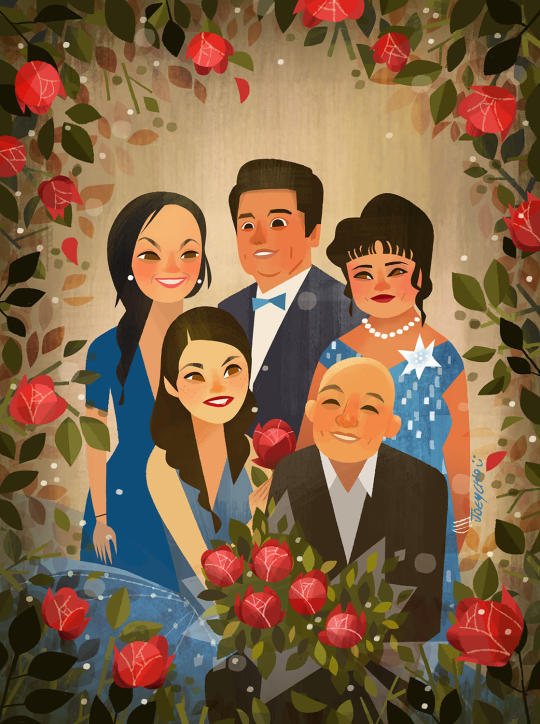By Evelyn I. Rodriguez
I hate the idea of starting a story about my mom with her being dead. But she is. And for the past ten years, that fact is the first thing that’s come to mind whenever anyone—whether they know this fact or not—has asked about her.
The consensus at her wake and celebration of life was that my mom was vivacious and the life of every party. So it feels almost irreverent to be fixated on her death. But even when I recall the moments when she seemed most alive to me—when her puppy made her laugh and her eyes crinkled into sparkly crescent moons, when she bestowed a new piece of tsismis to her circle of kumare and found herself at the delightful center of their attention, when she turned up the sound system in our living room and ignored my pleas to lower the volume so she could turn our carpeted sala into her personal disco—I end up remembering that I’ll never again hear her chuckle, or marvel at her comfort in the spotlight, or watch others admire her on a dance floor.
Knowing this doesn’t make me ache the way it did the first nine years after she left us. In fact, now that I’m at the age when it’s no longer alarming to hear of a friend’s parent’s death, and it’s become unexceptional to hear about friends helping parents decide between assisted-living homes or a live-in nurse, arrange advance directives, and make other end-of-life decisions, it’s occurred to me that maybe my sister and I got lucky?
Don’t get me wrong: It will never seem fair that she crossed the rainbow before I could collect her recipes, make more recordings of her doing mundane things, or ask her the right questions (Do we have diseases that run in the family? What were you like at my age? What can you tell me now about yourself that you couldn’t tell me when I was younger?). It still stings when I remember how, the year after her death, my motherless-ness seemed amplified every time the salesperson at a bridal shop asked, “When will your mother be joining us?” or “What would she think?” And I still wonder: Would my father have survived more than three years after her if he hadn’t become so heartbroken and disoriented after her passing? Would I have been more open to bringing a new generation into our family if her presence meant I could still access the repository of mothering knowledge that was lost when she became the last of her sisters to go?
But now I also ponder: Would I want the answers to those questions, or more time to observe her in the kitchen, or to film her dancing, if it meant having to see her inescapably bedbound, or unable to retrieve things from her memory, or to recognize who I am? Could I stand myself if I thought it was revolting to have to wipe her, or tedious to visit because she could no longer leave her room, or hold a conversation? What if one day something ugly flew out of my untamed mouth, and wreaked damage I could not repair?
In a parallel life, our final conversation—when she rushed off the phone with me, distracted, and eager to return to entertaining my visiting boyfriend, a man I wanted her to love, the partner she would never see me wed—would be unremarkable. I might not ever recall how splendid our small apartment seemed that afternoon, when all seemed so still after our noisy call, and every corner of that home seemed suffused with an extraordinary golden light. I wouldn’t have become terrified of late-night phone calls, would never have cried so endlessly that my eyes grew parched and my tear ducts had to be sealed. It never would have occurred to me to wonder if St. Anthony, patron saint of lost things, could help people like my father, who became entirely lost without his wife.
But who knows what would have happened after that parallel week? That parallel year?
What I do I know now is that my mother’s death wasn’t just an abrupt amputation of histories I still had to unearth; it also severed me forever from that alternate future we might have had together. But a decade of mourning that lost future has also sharpened my senses, and made it clear that it likely would have been far less untroubled than I used to imagine.
So, I’ve learned to see my mother’s departure as a peculiar good fortune. As plainly as I now discern her hand in the hummingbird hovering outside of my window, and the butterfly perched on my shoe in the garden, I recognize now that she spared me from a different kind of sorrow that she, who lost her mother at half my age, was never equipped to prepare me for. So I no longer feel trapped, but grateful. Because in the world I dwell in, neither of us will ever watch her grow so old that we consider which of us is really the parent; her voice, opinions, and recollections will never diminish, her face remains eternally creaseless, and her steps and shimmies will always remain graceful and in-time.


